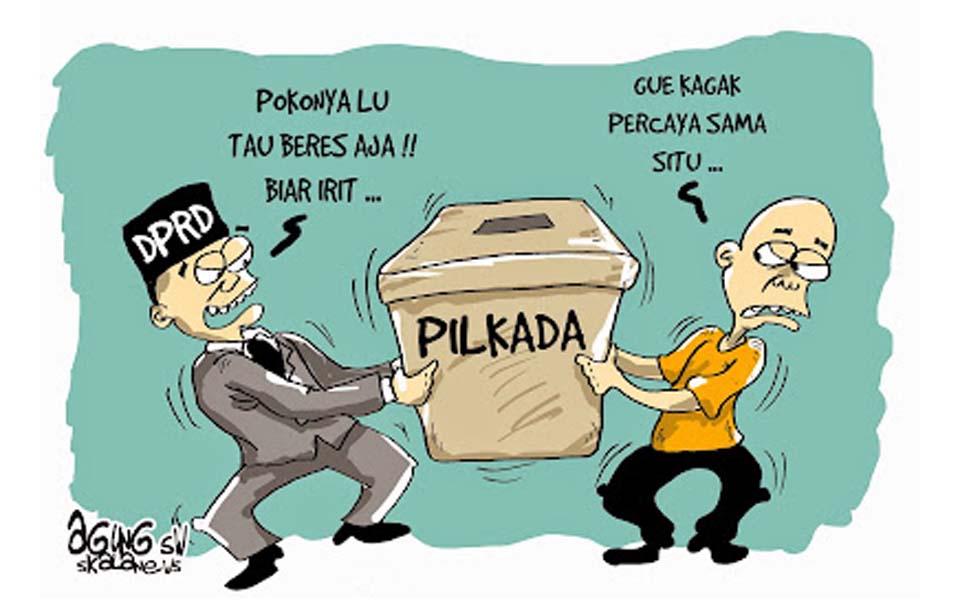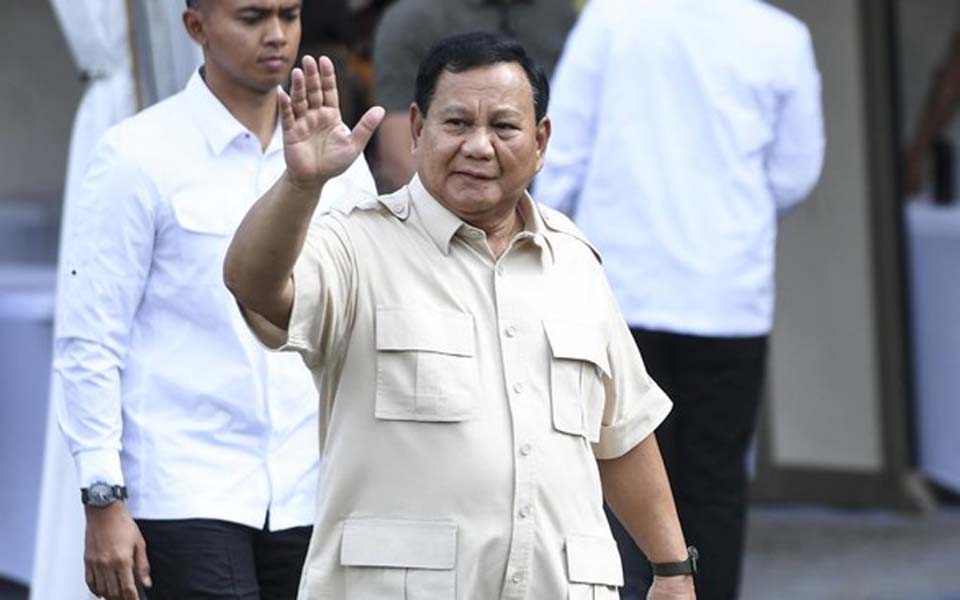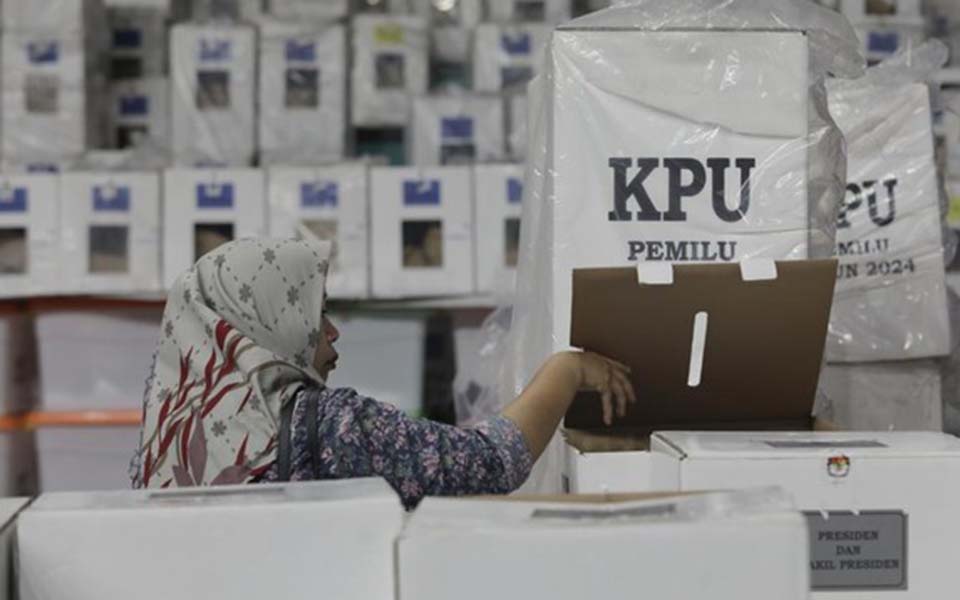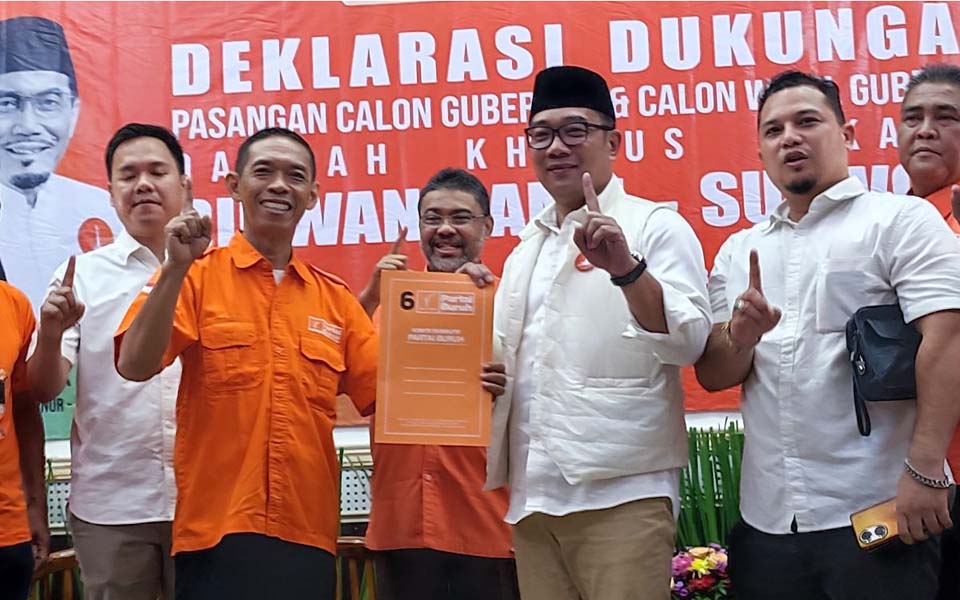Jakarta – Holding the elections in conflict areas such as Aceh will not result in quality elections. Basically this is because violence by state security personnel against the public is still occurring, particularly violence which increases a sense of fear in society.
This was revealed by Munir from the Indonesian Human Rights Watch (Imparsial) in a discussion titled ProPatria Public which took up the theme of “Experiences in the application of a state of emergency” in Jakarta on Wednesday January 7. The discussion, which was chaired by Stenley from the Institute for the Study of Free Flow of Information (ISAI), also presented George Yunus Adhi Tjondro, a research and publication consultant from the Free Land Institute and researcher Ikrar Nusa Bhakti from the Indonesian Institute of Sciences (LIPI).
“For the people of Aceh, going to the polling booths is related to [whether or not they are seen as being] loyal to NKRI [the Unitary State of the Republic of Indonesia], and in order to participate in the elections they must have a red-and-white identity card1. I am convinced that the level of participation during the elections in Aceh will be the highest in Indonesia2”, he said.
Meanwhile Tjondro was of the assessment that the security conditions in the Poso region [of Central Sulawasi] will continue to see acts of terror over the period of the elections. Basically, there are three national interests which always come to the fore in Poso. Firstly, the preservation of the military territorial commands. Secondly, the existence of Islamic political movements who want national political domination. Thirdly, the existence of dishonesty by the forces of capital, the military and the para-militaries. “This dishonesty involves the economic interests of the conglomerates [who want] to build a new economic centre in the Gulf of Tomini”, he said.
Bhakti sees the potential for violence during the elections in conflict area as being quite high. He hoped that the public will control themselves and no longer take part in open conflicts, which will only result in marshal law coming into force.
According to Bhakti, the political map of West Papua and Aceh are perhaps in the same territory, that is they are just supplementary. Moreover the public themselves are not very enthusiastic about participating in the elections.
“Although there are no political parties which are really wanted [by the people], [the former state ruling party] Golkar is however the best organised [and] perhaps will still obtain the most votes”, he said.
Generally added Bhakti, based on four assumptions the elections in Papua will run smoothly and peacefully. Firstly, the majority of the Papuan people are already traumatised by the massive military operation. Secondly, the Papuan people want to obtain independence though dialogue rather than armed struggle. Thirdly, if for example there were armed attacks by the Free Papua Movement (OPM) against the population or vital military installations, this will be spontaneous. Fourthly, the OPM has already become a symbol of an earlier period of the independence struggle. (MAM).
Notes:
1. Shortly after declaring marshal law in Aceh on May 19, 2003, the emergency military command made it mandatory for people to obtain and carry new red-and-white (the colours of the Indonesian national flag) identity cards in an attempt to limit the movement of Free Aceh Movement members. Applicants were required to first obtain clearance from their village chief and local military chief before the district administration could issue the card. The applicant then had to submit the card to the local police office for the police chief’s signature before getting the district chief’s signature. Afterwards, the applicant then had to register the ID number with the martial law administration.
2. It is common knowledge that many Acehnese have learnt that the best way to avoid repression by the military is to give the appearance of supporting the government and military’s efforts to maintain Aceh as part of Indonesia. This is most often reflected in public displays of enthusiasm during mandatory loyalty pledges. Failure to attend these and participate fully inevitably results in the individual and their families being targeted later attention by the military.
[Translated by James Balowski.]















